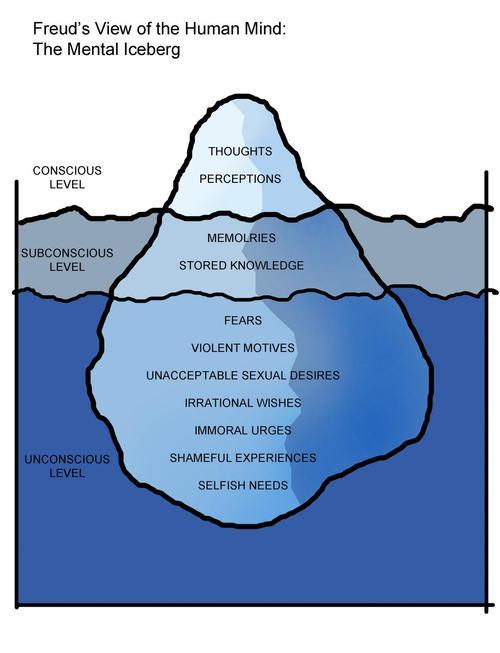Erick Morgado - Section 4
Sigmund Freud is known to most for his “discovery” of the unconscious and as the father of psychoanalysis. He believed that our choices are highly influenced by a state of mind that we aren’t aware of. This state of mind has our deepest wishes that are unconsciously coming to surface through our actions. The psychoanalysis treatment, or "talking cure", that most people know of today was his way of bringing out this unconscious mind and revealing one's own true nature.
Sigmund Freud is known to most for his “discovery” of the unconscious and as the father of psychoanalysis. He believed that our choices are highly influenced by a state of mind that we aren’t aware of. This state of mind has our deepest wishes that are unconsciously coming to surface through our actions. The psychoanalysis treatment, or "talking cure", that most people know of today was his way of bringing out this unconscious mind and revealing one's own true nature.
For philosophy, this created a
significant impact to the ideas that others currently had on their views of the
world. One example is the idea of free will existing against the idea of the unconscious
controlling our actions. The unconscious points out that our motivation to do
something, or our drive, is influenced by death and life. According to Freud, Thanatos (the death instinct) is what causes our aggression while Eros (the life instinct) triggers our self-preservation. While these two act as the broad categories used by Freud, they focus on pointing out how our actions are limited to what we unconsciously want. Another point to bring out is his idea on religion. He believed it was something used by humanity as a replacement for parental protection that one usually feels is lost as one grows older. He believes that we unconsciously desire a father figure to remain in our lives to protect and care for us at all times just like our parents had when we were younger. An all-mighty being that looks over our actions and decides right from wrong was created through these thoughts, according to Freud.
Another topic Freud liked to
talk about was our dreams. This is seen in his book Interpretation of Dreams that he wrote in 1900. He called it the “royal
road to the unconscious”, believing dreams to be a manifestation of our hidden
thoughts. Freud said that everything in a dream was a symbol representing
something that we want. He believed that analyzing them through psychoanalysis could reveal one’s true wishes. Did this mean that our motivation, our wishes,
and our dreams can’t be controlled by us and have already been determined as
goals for ourselves through our unconscious mind? Did we have a choice in these
wishes? Or have they also been influenced through our childhood just as Freud
liked to see it.
Did this mean that every action
is controlled by our unconscious mind? No, in fact our actions are merely
influenced. How much influence depends on how one’s personality came to be as
one grew up. He separated the mind into three parts: the Id, the Ego, and the
Superego. The Id is our instincts and urges, the Ego is the middleman of the Id
and Superego as the rational part, and the Superego is our morals. These three
are developed when we are children, deciding what we do and what we will be
doing. Over time, we learn to suppress our urges and childish actions as society
starts labeling us as teens or adults. We start to learn that throwing tantrums
is not something that an adult should be doing. During the time that we
suppress, the unconscious mind that was developed as we were young tries to
emerge from its depth to influence our actions later on in life.


That's an important distinction, between control and influence. How do we shake unconscious influence? The answer may be the most concise way of defending Freud's philosophical influence: by acknowledging it, confronting it, talking it through. THat's what we do in philosophy, converse and respond to verbal challenge. Is it enough, first to demonstrate the reality of unconscious influence and then to shake it? We'll need to keep on talking about that...
ReplyDelete